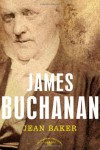86
Followers
34
Following
Seriously, Read a Book!
Thoughts on books, often interpreted through the high-brow prism of cartoon (read: Archer) references. Wait! I had something for this...
Currently reading
Land of LISP: Learn to Program in LISP, One Game at a Time!
The Sketchnote Handbook: The Illustrated Guide to Visual Notetaking
The Antidote
The Kind Worth Killing
James Buchanan
Horologicon
 Author, [a:Mark Forsyth|3234647|Mark Forsyth|https://images.gr-assets.com/authors/1354096280p2/3234647.jpg], warns readers against consuming [b:The Horologicon: A Day's Jaunt Through the Lost Words of the English Language|15731829|The Horologicon A Day's Jaunt Through the Lost Words of the English Language|Mark Forsyth|https://images.gr-assets.com/books/1347799720s/15731829.jpg|21412078] start-to-finish, cautioning that:
Author, [a:Mark Forsyth|3234647|Mark Forsyth|https://images.gr-assets.com/authors/1354096280p2/3234647.jpg], warns readers against consuming [b:The Horologicon: A Day's Jaunt Through the Lost Words of the English Language|15731829|The Horologicon A Day's Jaunt Through the Lost Words of the English Language|Mark Forsyth|https://images.gr-assets.com/books/1347799720s/15731829.jpg|21412078] start-to-finish, cautioning that:If you do, Hell itself will hold no horrors for you, and neither the author nor his parent company will accept liability for any suicides, gun rampages or crazed nudity that may result. However, given that the words are organized by hour of the day (hence the title), as opposed to alphabetically, this should be taken with a grain of salt. [I read it through, and I'm fine…ish]
I love words: learning about them, using them, reading them— and, though this wasn't my favorite volume of lexicographic delight, there are some real gems in there. Since I’m short on time, I’ll just give you three terms that I hope to see (hear?) resurrected within my lifetime— they certainly seem relevant these days...
Paralipsis is the practice of mentioning that you’re not mentioning something, and saying what you’re not saying (p. 234).
The technical term for a dishonest politician is a snollygoster. Well, all right, it may not be the technical term, but it is the best one. The OED defines snollygoster as ‘A shrewd, unprincipled person, esp. a politician’ (p. 9).
Ultracrepidarianism is ‘giving opinions on subjects that you know nothing about’, and is thus a terribly useful word (p. 59).










